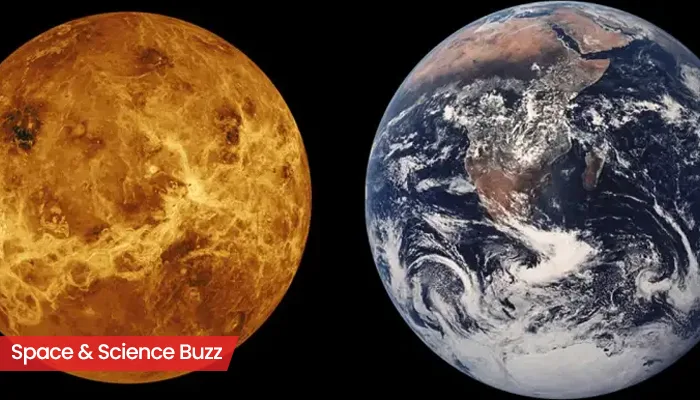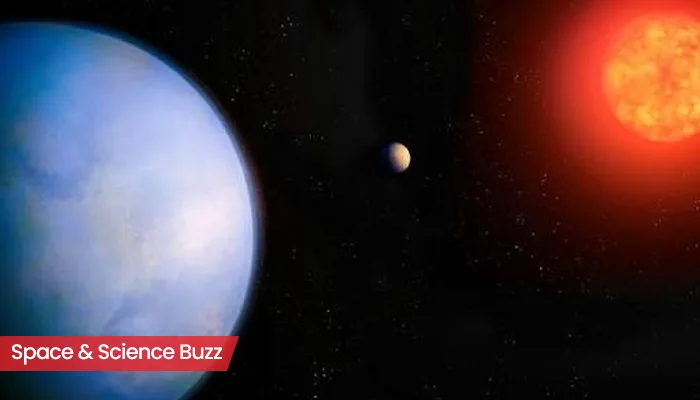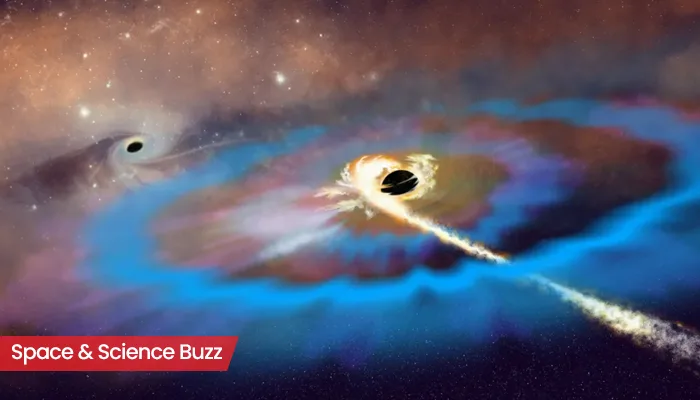
Here are today’s most important updates from the realm of Science and Space.
Earth’s Reflection is Fading – And So Is Our Future
New research highlights a significant shift in Earth's energy balance, with the planet absorbing more sunlight and trapping more heat than it releases into space. This imbalance being referred to as the “dirty mirror effect” which is contributing to an accelerated rate of global warming, exacerbated by changes in cloud cover and reductions in air pollution. A study revealed that cloudy areas over oceans are reflecting less sunlight back into space, particularly off the coasts of California and Namibia, as well as near Antarctica. While cleaner air improves public health, it also enhances the effects of greenhouse gases, potentially influencing climate patterns beyond local areas. This research shows the complex interplay between climate change, air pollution, and cloud dynamics.
Cold, Mysterious, and Full of Surprises—Chandrayaan’s Stunning Lunar Discoveries

India's Chandrayaan missions have recently made two significant discoveries on the Moon, advancing our understanding of lunar plasma dynamics and water ice reserves. Contrary to previous assumptions, the Moon's passage through Earth's geomagnetic tail does not result in lower plasma densities. Instead, researchers found unexpectedly high electron densities in the Moon's ionosphere, reaching approximately 23,000 electrons per cubic centimeter. This is nearly 100 times higher than densities observed on the sunlit side and comparable to those in the Moon's wake region. These findings highlight the importance of continued lunar exploration and the pivotal role India is playing in this field as it readies Chandrayaan-4.
Silent Collapse: The Hidden Death of Underwater Forests Due to Climate Change

Kelps play the role of trees in the marine ecosystem. They provide food, habitat, and a nursery ground for a variety of organisms. They help in maintaining the complex ecosystem. Whereas, climate change is causing immense damage to the pristine Arctic world. The Arctic sea ice is melting at a rate of roughly 13% per decade during the summer months. The inflow of large volumes of fresh water will reduce the salinity, washed-in sediments will reduce the light availability, and harmful elements may lead to heavy metal like cadmium, lead, and mercury deposition. The increased heavy metal content could lead to the accumulation of these elements across the food web in the Arctic. This can also lead to reduced development, growth, and reproduction of marine animals.
Silent Killer: How Microplastics in Soil Threaten Global Food Security

Global food security is seriously threatened by the concerning effects of microplastics on the world's food production, according to a recent study. The study claims that microplastics negatively affect plants' capacity for photosynthesis, which is causing vital crops like maize, rice, and wheat to cease to exist. Experts estimate that between 4% and 14% of these staple crops are being lost due to the pervasive pollution. As microplastic contamination continues to increase, the effects could worsen in the coming years. microplastic pollution could potentially put an additional 400 million people at risk of starvation by 2040, worsening the already dire hunger crisis that affected 700 million people in 2022.


.webp)
.WEBP)
.WEBP)
.webp)
.webp)


.webp)
.webp)
.webp)
